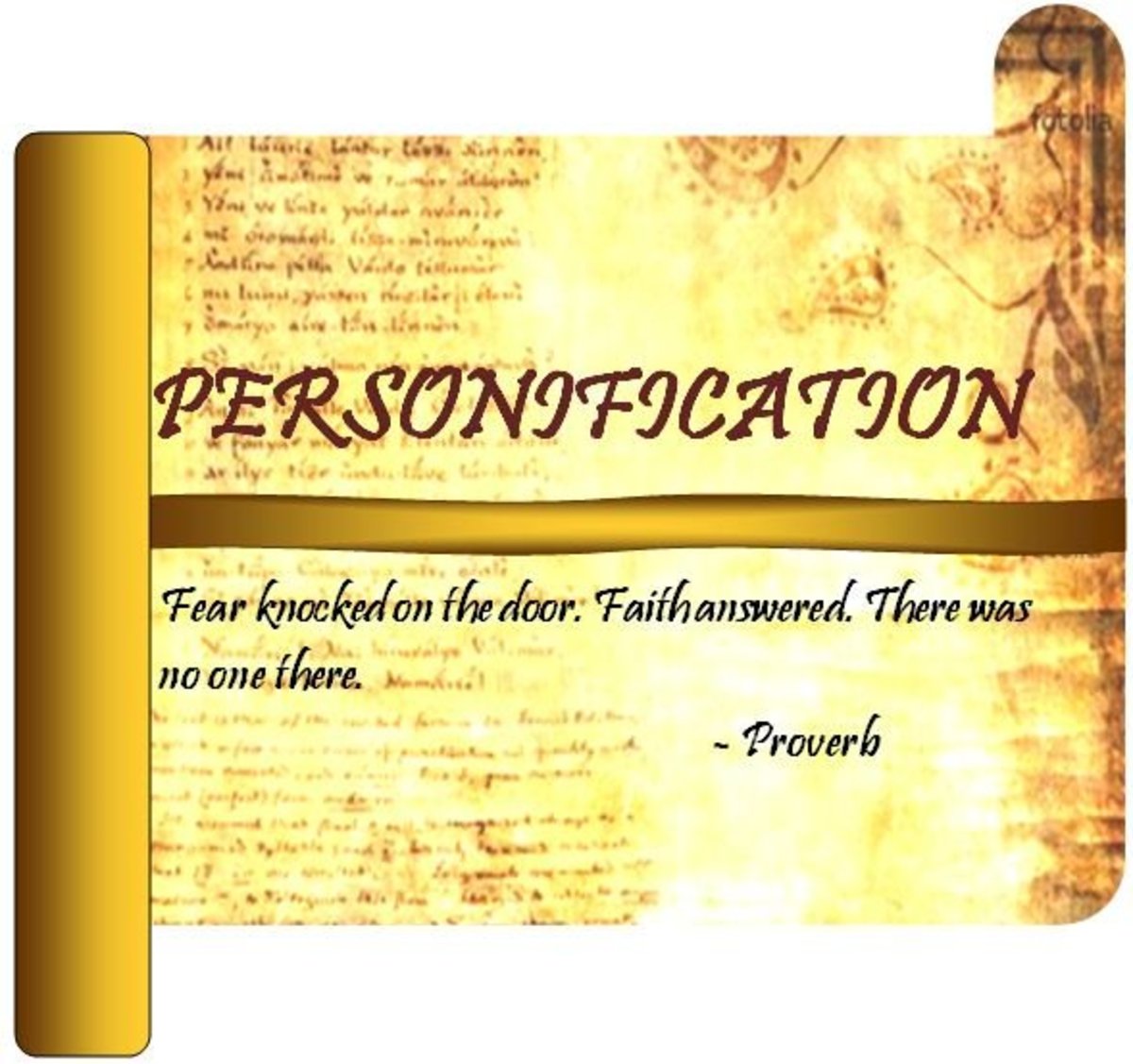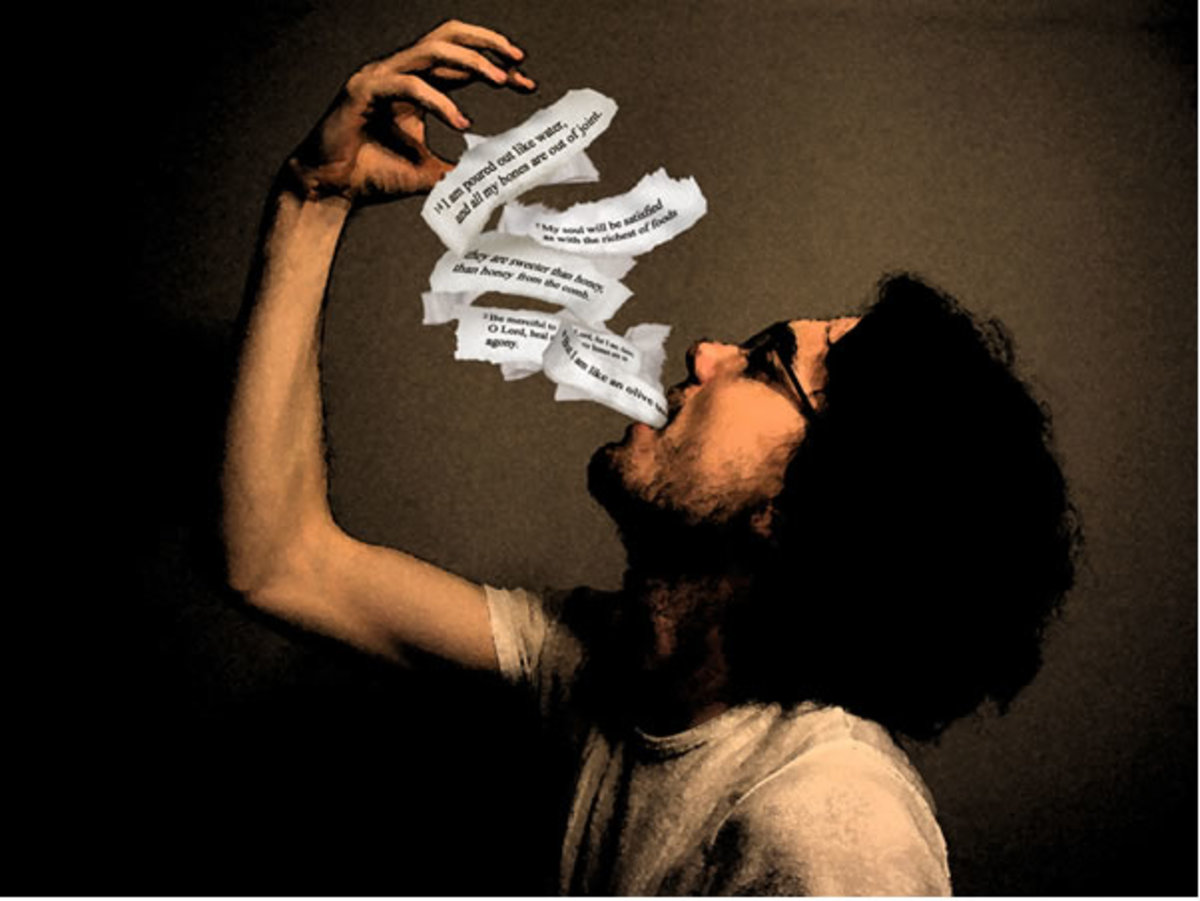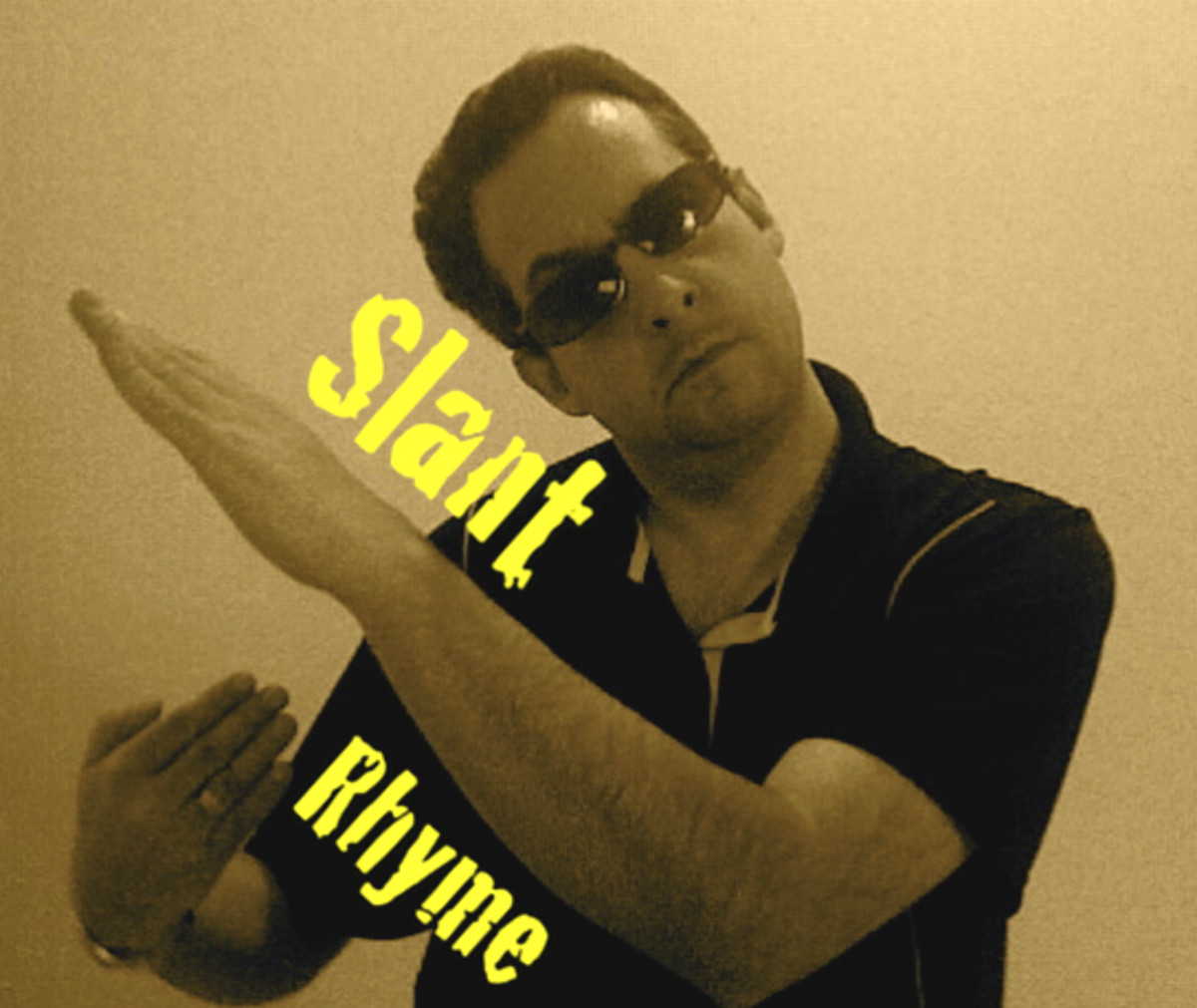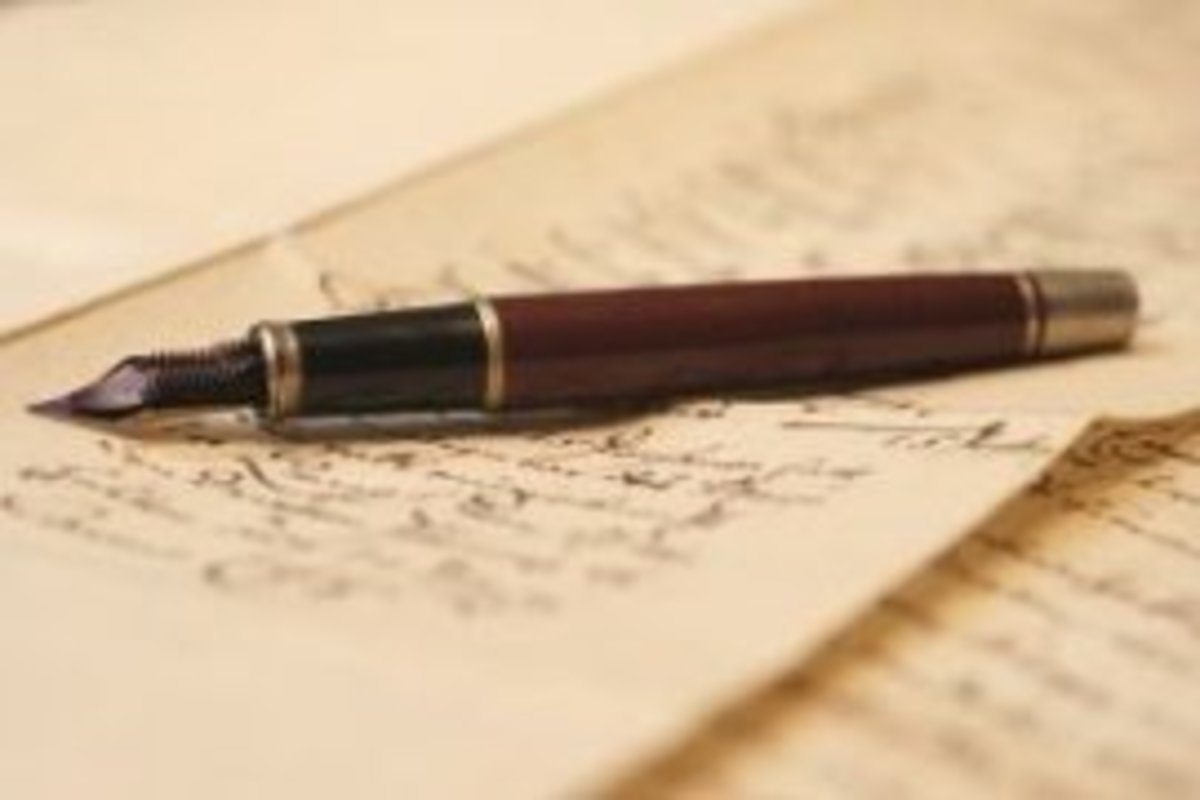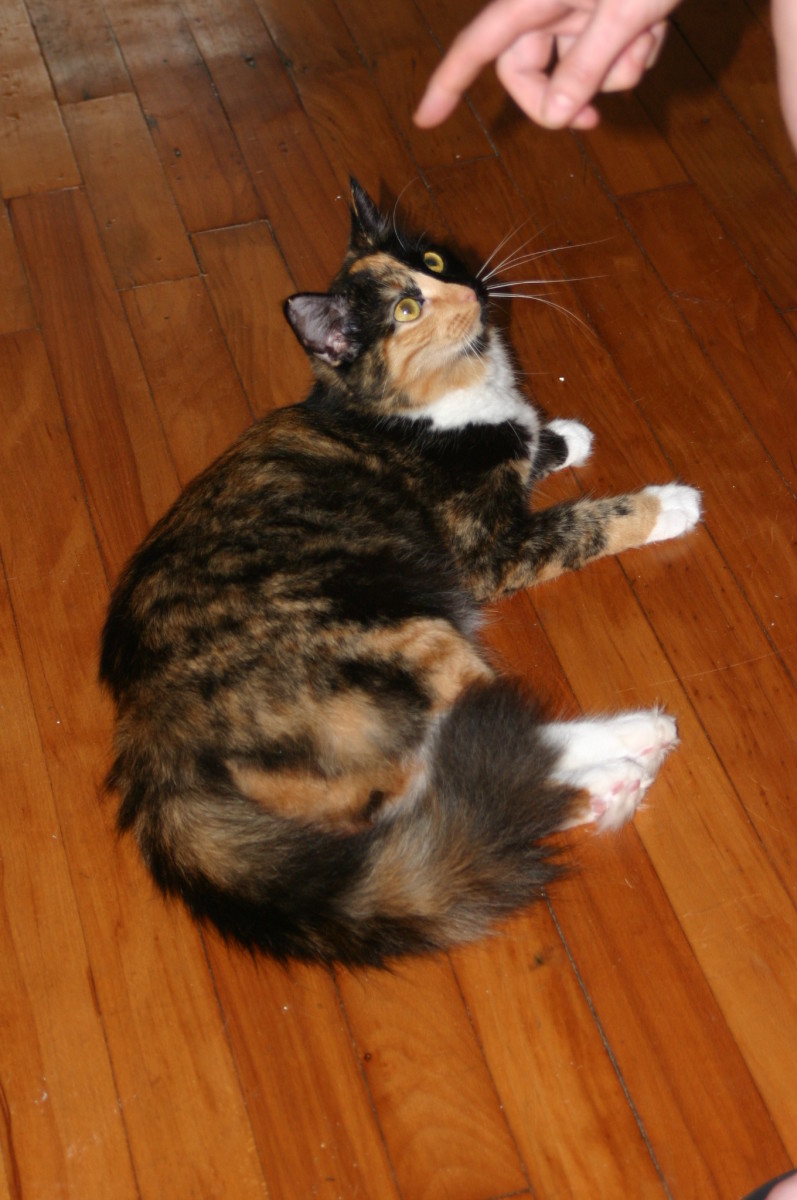Poetry Does Not Need to Rhyme
What Rhymes With Orange!
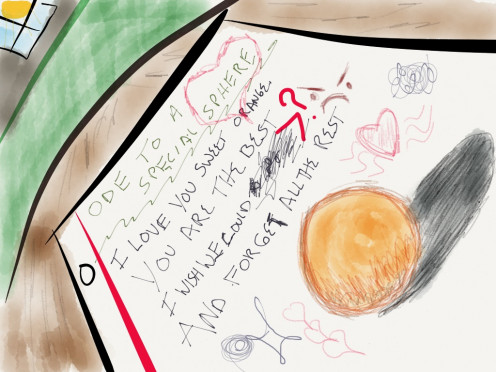
Rhyme Time
All good, well-written poetry MUST rhyme.
Rhyming Is the Whole Point to Poetry, Right?
Rhyme is sometimes overused. When poems are built solely around forcing the rhyme, it makes for a poorly written and sounding poem. There are many different literary devices that make a poem exemplary besides or in addition to good rhyme.
On the positive side, many excellent poems have spectacular rhyme schemes. Rhyme has a undeniable place in the world of poetry. This is because rhyme is the easiest literary device for readers and listeners to understand. If a poem rhymes, the flow of the rhyme is immediately entertaining. In an attempt to catch their readers in the same way, some poets overuse or force rhymes which sacrifice the integrities of their poems.
WARNING
There is no right or wrong way to write poetry. However, not all poetry is good. In fact, there is good poetry and not-so good poetry.
Are You a Poet?
How often do you write poetry?
What Is the Proper Way to Write a Poem?
For those who want to write poetry but are afraid they will not do it "right", keep one thing in mind. There is no "right" or "wrong" way to write a poem. Anything you write and call a poem is a poem. Do not be afraid to let your emotions flow through the ink.
However, that does not mean that all poetry is good. There is, in fact, good poetry and not-so good poetry.
This is the main point that people have a difficult time coming to terms with. Some writers feel that their poems seem great to them, so they must be great poems. Poetry analysis is subjective so in their minds, they win. However this is not so. There are some objective constructs of a poem that are also analyzed that separate the good from the not-so good.
Not All Poets Like All Types of Poetry
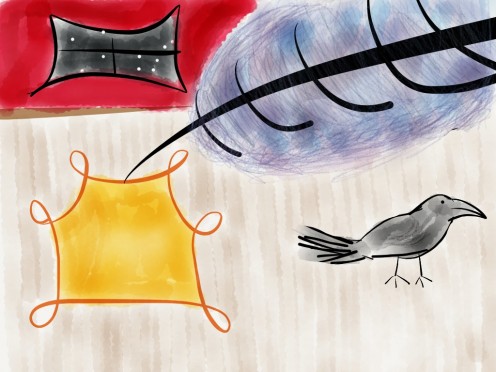
Why Do I Want This Literary Device Here?
Many alternatives and complements to rhyme exist. A complete poem should include the use of multiple literary devices. Once again, there is no specific number, order or types which must be used. However, some sound better with others and some sound good only if the writer has a special gift for using them.
Know your level of expertise. When you begin to understand the other types of literary devices, be sure you hone your skills in using them. Once again, there is good alliteration and bad alliteration. Be sure you take time to ask yourself, "Why do I want [insert literary device] here?" Answer that question thoroughly, and your poem will most likely benefit from it.
This is a good example of, "Why would I want onomatopoeia while describing this character?" Excuse the cliché, but if you were writing a poem about some one who was extremely nervous and waiting alone in a quiet room you might add an analog clock.
As time passes he gets more and more nervous. You may want to add the onomatopoeia of the tick...tock...tick...tock of each second within your poem to add emphasis on how slowly time is moving for him or how much more nervous he becomes with each tick...tock... Those are your reasons for adding onomatopoeia.
Why Are You Using Rhyme?
If you want to use rhyme, use it well. Ask yourself, "Why do I want to use rhyme here?" If you are able to give a complete, thoughful answer, your poem most likely will benefit greatly from the use of rhyme.
A Visual of Onomatopoeia.
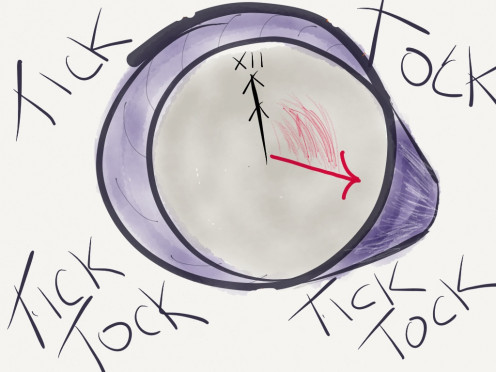
Time, Patience, Revision and Time...and Revision (and Patience)
Writing good poetry is not the act of flipping open a notebook, quickly writing down your emotions as you feel them at that moment in your life and trying to make the end of each line rhyme. That is more venting or journaling.
If you want to write great poetry you need to take your time to narrow down your topic, choose effective literary devices (which may include rhyme), and be prepared to edit, revise, edit, revise, edit and revise many times before it becomes an excellent poem. This take practice. This take patience. This takes time (some professional poets have spent literally years revising 20-line poems). This takes hard work and dedication. However, there is no wrong or right way to do it, so everyone should give it a shot.
Literary Devices Other Than Rhyme
Feel free to use rhyme if it makes sense to do so for your poem. Here are some other literary devices that give your poem a more well-rounded feel. They are divided by skill levels.
Novice:
- Alliteration
- Symbolism
- Personification
- Simile
- Metaphor
- Onomatopoeia
- Consonance
- Assonance
Advanced:
- Anaphora
- Apostrophe
- Metonymy
- Synesthesia
- Epistrophe
- Caesura
- Archaism
- Reification
There are many more, so find some and start writing.


